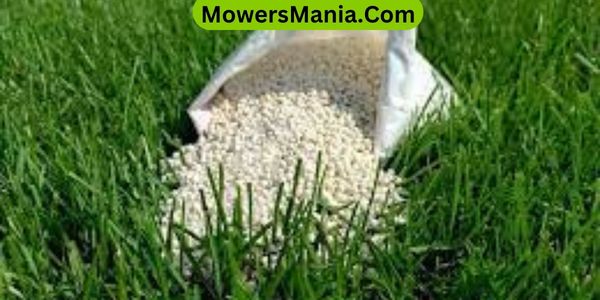Wondering if you can use winter fertilizer in the summer? You’re not alone. Using the wrong type of fertilizer can have unintended consequences for your lawn and plants.
In this article, we’ll explore the composition of winter fertilizer, its effects when used in the summer, and alternative options for summer fertilization.

By understanding the best practices for seasonal fertilization, you can ensure the health and vitality of your lawn and garden all year round.
Can winter fertilizers be used in the summer?
Winter fertilizers are designed to prepare plants for the harsh conditions of winter. They typically have a higher potassium content compared to other fertilizers. Potassium helps plants build strong cell walls, which is essential for winter hardiness.
Additionally, winter fertilizers often contain lower nitrogen levels to discourage new growth during the dormant winter months. Using winter fertilizer in the summer may not be ideal because the high potassium content can be detrimental to some plants during their active growing season. The excess potassium can lead to nutrient imbalances and potentially harm the plant.
Instead, consider using a balanced, all-season fertilizer during the summer months to promote healthy growth. It’s important to understand the specific needs of your plants and choose a fertilizer that aligns with their requirements for each season.
Effects of Using Winter Fertilizer in Summer
Using winter fertilizer in the summer can lead to imbalances in nutrient levels, potentially harming your plants’ growth. Winter fertilizers are designed to release nutrients slowly over a longer period, which is beneficial during the colder months when plant growth is minimal.
However, when used in the summer, these slow-release nutrients can cause nutrient imbalances and affect the overall health of your plants.
- Nutrient Imbalance: Winter fertilizers often contain higher levels of potassium and lower levels of nitrogen, which can disrupt the delicate nutrient balance needed for healthy plant growth during the summer.
- Risk of Burns: The high levels of potassium in winter fertilizers can increase the risk of fertilizer burn on your plants during the summer, especially if applied in hot and dry conditions.
- Impact on Flowering and Fruit Development: Using winter fertilizer in the summer can impact the flowering and fruiting of plants, as the nutrient composition may not align with the specific needs of the plants during the summer growing season.
It’s important to use fertilizers specifically formulated for summer use to ensure that your plants receive the right balance of nutrients for optimal growth and health.
Alternatives to Winter Fertilizer for Summer

Consider using summer-specific fertilizers as alternatives to winter fertilizer for your plants during the warmer months. Summer fertilizers are specifically formulated to meet the nutritional needs of plants during the growing season.
These fertilizers often contain higher levels of nitrogen to promote leafy growth and phosphorus for strong root development. Look for a fertilizer with a balanced ratio of nitrogen, phosphorus, and potassium, such as a 10-10-10 or 20-20-20 mix, to provide your plants with essential nutrients for healthy growth.
Another alternative to winter fertilizer for summer is organic compost. Compost is a natural and environmentally friendly way to nourish your plants.
It improves soil structure, retains moisture, and provides a slow release of nutrients as it breaks down. You can use compost as a top dressing for your plants or mix it into the soil to enhance its fertility.
Furthermore, consider using slow-release fertilizers that provide a steady supply of nutrients to your plants over an extended period. These fertilizers are convenient and ensure that your plants receive a consistent amount of nutrients without the risk of over-fertilization.
When selecting a summer fertilizer, always follow the instructions on the product label and consider your specific plant needs for optimal growth.
Best Practices for Summer Fertilization
Apply summer-specific fertilizers to meet the nutritional needs of your plants during the growing season. When it comes to fertilizing your garden or lawn in the summer, it’s essential to use the right products and techniques to promote healthy growth and vibrant blooms.
Here are some best practices for summer fertilization:
- Choose a fertilizer with a high nitrogen content: Look for a fertilizer with a higher nitrogen ratio to support leafy growth during the active growing season.
- Water deeply after fertilizing: After applying fertilizer, water the area deeply to ensure that the nutrients penetrate the soil and reach the root zone of the plants.
- Follow the application instructions: Always read and follow the instructions on the fertilizer packaging to avoid over-application, which can lead to fertilizer burn and harm your plants.
Considerations for Lawn and Plant Health

You should assess the specific nutritional requirements of your lawn and plants during the summer months to determine the most suitable fertilizer for promoting their health and vigor.
Summer brings unique challenges such as heat stress, increased foot traffic, and higher water requirements.
When selecting a summer fertilizer, consider a balanced blend that includes nitrogen, phosphorus, and potassium. Nitrogen promotes healthy leaf growth, phosphorus supports root development, and potassium aids in overall plant health and stress tolerance.
Additionally, be mindful of the nutrient release rate of the fertilizer. Slow-release fertilizers are advantageous as they provide a steady supply of nutrients over an extended period, reducing the risk of leaching and promoting sustained plant growth.
It’s also crucial to consider the environmental impact of the fertilizer. Look for products with reduced environmental impact and always follow application instructions to minimize potential harm to surrounding ecosystems.
Lastly, consider the specific needs of different areas of your lawn or garden. For example, shady areas may require different nutrients compared to sunny spots.
Frequently Asked Questions [FAQs]
Can Using Winter Fertilizer in the Summer Cause Damage to My Lawn or Plants?
Using winter fertilizer in the summer can harm your lawn or plants. It may contain high levels of nitrogen, which can burn the grass and cause excessive growth. Opt for a balanced summer fertilizer instead.
Is It Safe to Use Winter Fertilizer on Vegetables or Edible Plants During the Summer?
Using winter fertilizer on vegetables or edible plants during the summer isn’t recommended. The high nitrogen content can result in excessive foliage growth at the expense of fruit production. It’s best to use a balanced fertilizer for your edible plants in the summer.
Will Using Winter Fertilizer in the Summer Affect the Soil’s Ph Levels?
Using winter fertilizer in the summer may affect the soil’s pH levels. It’s important to consider the specific nutrients and their impact on the soil. Always check the fertilizer labels for guidance on seasonal use.
Are There Any Environmental Concerns or Regulations Regarding Using Winter Fertilizer in the Summer?
Using winter fertilizer in the summer may violate environmental regulations and harm local ecosystems. It can lead to nutrient runoff, contaminating water sources and disrupting natural balances. Check local guidelines for proper fertilizer use.
Can Using Winter Fertilizer in the Summer Attract Pests or Insects to My Lawn or Garden?
Using winter fertilizer in the summer can attract pests and insects to your lawn or garden. The high nitrogen content in winter fertilizer can promote rapid growth, making plants more susceptible to pests. Consider using a balanced summer fertilizer instead.
Conclusion
In conclusion, using winter fertilizer in the summer may not provide the best results for your lawn and plants.
It’s important to understand the composition and effects of winter fertilizer, and consider alternative options for summer fertilization.
By following best practices and considering the health of your lawn and plants, you can ensure that they receive the proper nutrients they need to thrive during the summer months.



